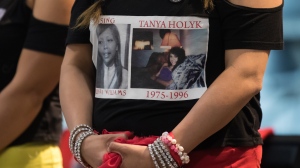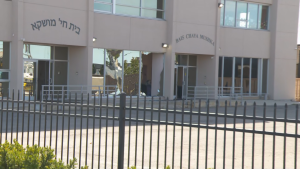A British Columbia judge has denied the request for victim’s families to be granted standing in an application to release evidence from the Robert Pickton case.
The application, made by the Vancouver Sun and The Province newspapers, sought to have the court release evidence that was not presented during Pickton’s trial in 2007. The evidence includes transcripts of interviews with Pickton, as well as information about the investigation into the murders of sex workers in Vancouver’s Downtown Eastside.
Justice Jennifer Duncan ruled that the victim’s families did not have a direct interest in the application and therefore did not have standing to participate in the proceedings. She also noted that the families had already been given access to the evidence during the trial.
The decision was met with disappointment from the families, who have been seeking closure and answers for over two decades. Many of the victims’ relatives were present in court during the hearing and expressed their frustration with the ruling.
However, the judge emphasized that the application was not about the victims or their families, but rather about the media’s right to access the evidence. She stated that the media plays an important role in ensuring transparency and accountability in the justice system.
The application was initially filed in 2018, but was put on hold due to concerns about the privacy of the victims and their families. The judge’s decision to deny standing to the families means that the application can now move forward.
The release of the evidence could potentially shed new light on the investigation and the actions of law enforcement in the case. It could also provide closure for the families of the victims, who have been left with many unanswered questions.
The judge’s ruling is a reminder of the complexities and sensitivities surrounding the Pickton case, which remains one of the most notorious and tragic in Canadian history. As the application continues to unfold, it is important to remember the victims and their families, and to ensure that their voices are heard.




